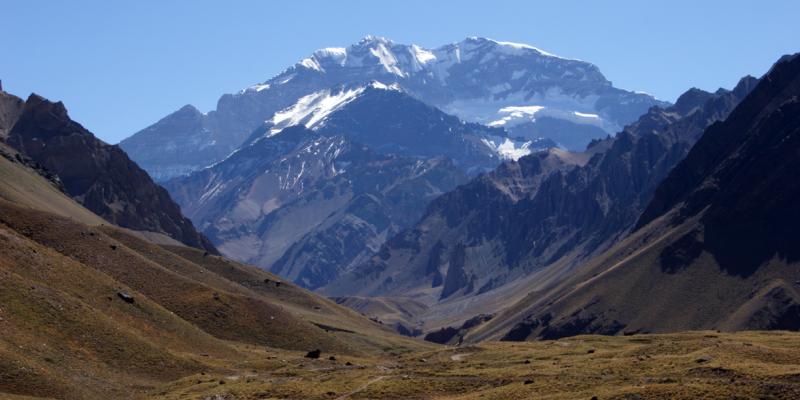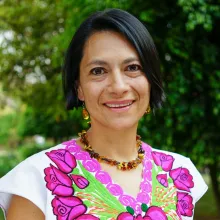
For the life and health of my children: We MUST include Human Rights in the New Climate Accord
By Astrid Puentes Riaño (@astridpuentes)
Originally published by IntLawGrrls
We humans have caused climate change, a real threat to humanity thus it requires human solutions. We also have lost precious time on eternal discussions about the existence of climate change, despite imminent evidence. Our efforts to deliver solutions must be inclusive and ambitious if they are to ensure that the lives and livelihoods of all people are protected.
If and how to include human rights protections in new climate accord was one of the primary issues discussed during October’s Bonn Climate Conference. These protections were notably left out of the no-text presented by the co-chairs, and then added back in at the insistence of several countries, many from the Global South, and hundreds of civil society organizations.
I could write a long list of legal, political, ethical, and economic arguments as to why human rights must be included in the Paris Agreement. In my opinion, however, they can all be distilled into two primary and powerful arguments: my children!
At 4 and nearly 2 years old, they are already experiencing the realities of a changing climate. Some days, for example, they cannot go to the park because of increased air and climate pollution levels in Mexico City, be it black carbon or ozone, or both. Unfortunately, the worst is yet to come, as hurricanes, droughts, floods, glacier loss, and fires are all increasing.
Now the question for my kids is not whether they will suffer from climate change, but to what extent.
Some may say I’m exaggerating, and that my kids aren’t among the most affected. They’re right.
Many others are suffering, and will continue to suffer, far worse consequences, such as: the Kunas in Panama, who are loosing their land due to sea-level rise; the 62 million people living on 52 small island states, including Tuvalu and Barbados; the 70 million people in the Andes, all of whom depend on water from glaciers and paramos, which are expected to dissapear within a few decades.

Despite the evident urgency, official responses have been shamefully slow. The United Nations recently announced that current national commitments aren’t enough to prevent world temperatures from surpassing 2oC by 2100, when my children will be 89 and 87 years old.
How, then, can we speed up agreements, increase ambition, and close the gap between what is needed and what is promised by States?
Human Rights are an important part of this answer. If implemented, they can help to:
- Recognize the realities of climate change and its impact on the enjoyment of human rights of all peoples, particularly those in vulnerable situations.
- Remind States of their existing obligations to protect and respect human rights, obligations which are fundamentally shared by corporations and other international entities. Incorporating human rights in the climate change agreement will not create new obligations; it will instead allow us to be consistent and comply with preexisting commitments.
- Avoid increased threats to world stability that have been linked to climate change due to impacts such as: local resource competition, livelihood insecurity, migration, extreme weather events and disasters, volatile food prices, transboundary water management, sea-level rise, coastal degradation, and the unintended effects of climate policies.
- Spur effective solutions, such as the rethinking of energy. These kinds of solutions haven’t yet been achieved due to a lack of ambition and political will.
 For my son and daughter, and the millions of children of the world, we must accept that climate change is a human rights issue. For the health of future generations, and that of those already suffering from its impacts, we must do all we can to create effective solutions.
For my son and daughter, and the millions of children of the world, we must accept that climate change is a human rights issue. For the health of future generations, and that of those already suffering from its impacts, we must do all we can to create effective solutions.
The new climate accord, which will be signed in Paris this December, must include human rights protections in its Preamble, as well as in its operative text. Only then, with an overarching respect for the rights of all people, can begin to see the results we need in the fight against climate change.
We must take the climate crisis seriously.
If not, we will be trapped in short-sighted negotiations that won’t provide my children the hope of a dignified and healthy life. They will be left inside, unable to play in the park, to enjoy the world beyond our doorstep. And those in more vulnerable situations may be left with nowhere at all to find the shelter they seek.
Astrid Puentes

Astrid Puentes Riaño was one of the two Co-Executive Directors of AIDA (2003-2021). She was responsible for AIDA’s legal efforts and organizational management. Originally from Colombia, Astrid has significant experience linking environmental protection with human rights, and climate change, highlighting the importance to prioritize climate justice. For over twenty years she has been working on public interest litigation, especially in the field of human rights, the environment, and climate change. Astrid holds an LL.M. in Comparative Law from the University of Florida, a Masters in Environmental Law from the University of the Basque Country, and a J.D. from the Universidad de Los Andes, Colombia. Astrid has also taught several seminars and classes on human rights, the environment and climate change, including at American University Law School in Washington, and the Universidad Nacional Autónoma de México (UNAM).
